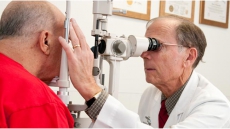REGINA — Nurses are the latest group to join opposition to a private, for-profit plasma donor clinic in Saskatchewan.
Tracy Zambory, president of the Saskatchewan Union of Nurses, has written a letter to federal Health Minister Jane Philpott that says nurses believe the clinic poses a serious safety risk to the blood supply.
Canadian Plasma Resources opened its doors Feb. 18 and plans to pay people with $25 gift cards for making plasma donations.
The centre will be inspected by Health Canada and has to comply with national regulations, including donor screening and testing.
Zambory asks Philpott to immediately prevent Health Canada from issuing licenses to any clinic intending to pay donors for blood or plasma.
Zambory also points to an inquiry into the tainted blood scandal of the 1980s which recommended against paid-donor blood clinics.
"SUN is deeply concerned that any company paying donors for plasma would be operating in direct contravention of these recommendations and would once again be placing Canadians in great peril," Zambory said in letter Tuesday.
The Canadian Union of Public Employees and the Saskatchewan Federation of Labour have also called for a ban on such clinics.
Philpott has fended off calls to close the clinic in Saskatchewan by saying Canada has one of the safest blood systems in the world. She said in the House of Commons on Feb. 18 that the government has "examined this in great detail" and is "approaching this matter looking at the science and making sure that there are no compromises to the safety of the blood system."
Saskatchewan Health Minister Dustin Duncan supports the clinic and has noted that 80 per cent of plasma used in Canada currently comes from paid donors, largely in the United States, but also in Europe.
Plasma is the straw-coloured liquid portion of blood.
Canadian Plasma Resources says donating typically takes one hour. It says plasma collected will be used in other medical therapies, not for direct transfusions.





